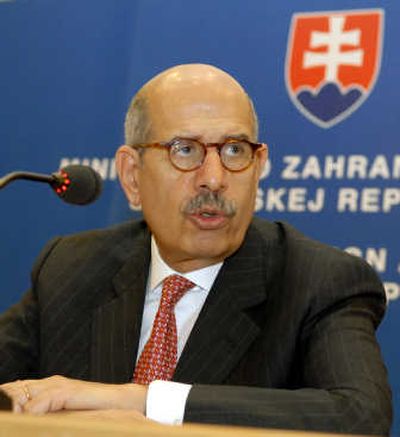U.N. nuclear watchdog warns of extremist threat

MUNICH, Germany – The United Nations’ chief nuclear watchdog provided a singularly bleak vision of a world “in disarray” Saturday, warning that the most imminent threat is not a new nation joining the nuclear club but deadly material falling into the hands of extremists.
The specter of nuclear terrorism is not a new theme for International Atomic Energy Agency chief Mohamed ElBaradei, who has been managing the crisis over Iran’s nuclear program for the past six years, but his language was particularly gloomy at a conference of international leaders on security here.
“Is the world in disarray? Unfortunately, the answer is yes. The world is in disarray,” he said. “The world is going through a period of insecurity and instability; I think we all agree on that. All you have to do is look at what we go through here and at the airport – it’s awful the life we have to go through at times.”
ElBaradei, who won the Nobel Peace Prize for his work on Iran in 2005, drew a picture of a world wrestling with the details of one nation’s nuclear quest amid a much larger threat of nuclear catastrophe brought on by poverty, political humiliation and the failure of the world’s most powerful countries to move swiftly to nuclear disarmament.
“We still live in a world where we have 2 billion who live on under $2 a day, one-third of our fellow beings. … We have 20,000 people who die every day because they are too poor to live. The sanctity of human life – are we really serious about the sanctity of human life?” ElBaradei said to an audience of presidents, prime ministers, defense ministers and top diplomats from Europe and the United States.
He warned of the danger of nuclear material falling into the hands of extremist groups, nurtured on “anger, humiliation and desperation” in the Middle East or elsewhere.
He said the IAEA was handling 150 cases a year of illicit trafficking of nuclear material. Some material that is reported stolen is never recovered, he said, and conversely, “a lot of the material recovered has never been reported stolen.”
“This, to me, is the most danger we are facing today. Because any country, even if they have nuclear weapons, would continue to have a rational approach,” he said. “They know if they use a nuclear weapon, they will be pulverized. For an extremist group, there is no concept of deterrence. If they have it, they will use it.”